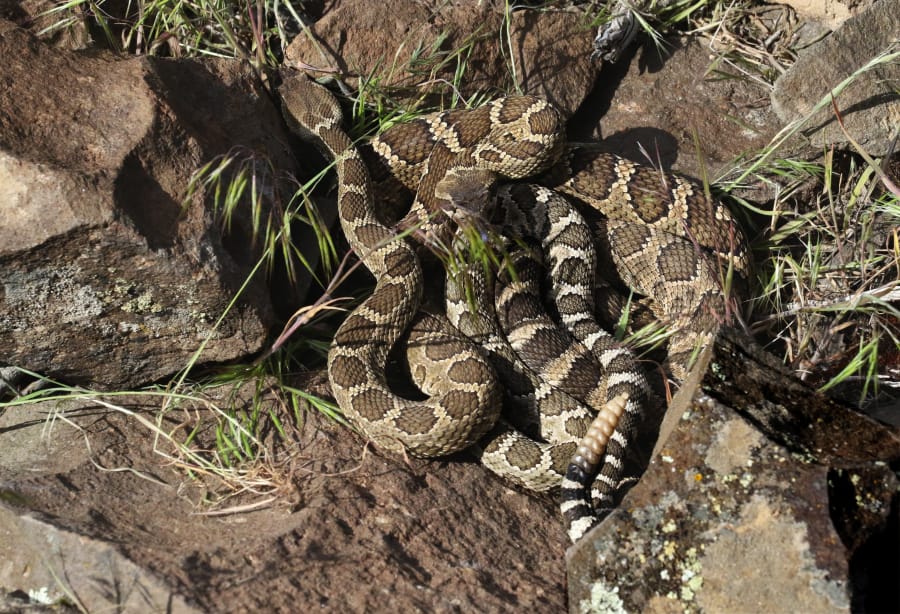A relentless sun was beating down as I walked back to my truck. Sweating and heat-weary, I was trudging along with my head down when I heard the warning sounds of a rattlesnake.
That frightening sound cut right through the fog in my sun-beaten head and I snapped to attention. About 4 or 5 feet in front of my dog was a coiled and ready to strike rattlesnake shaking his rattles in the quintessential herpetological warning.
He had been resting right in the middle of the path when we stumbled upon him.
My dog Tito has met these snakes before, and knew better than to advance. At the sound of my panicked command he instantly fell back behind me. Never breaking from its threatening stance, or relenting the shaking of his rattles, the snake slowly backed into the riverside brush.
We waited a long time before scooting by the spot where he had disappeared. On the rest of the walk back I warned everyone I saw of the danger lurking along that trail.
To say that I was “rattled” by the encounter would be an understatement. I have had a hunting dog bit by a rattler, and I was not eager to repeat that experience.
My thoughts went back to a conversation I had had with Stacie Kelsey of the Washington Department of Fish and Wildlife recently. She had been talking about rattlesnakes in the eastern Columbia River Gorge, where I was fishing that day, and she had a warning for fishermen.
“You need to be aware of your surroundings in at all times,” she said.
How true. I had been diligently watching my dog all morning until I let my guard slip just moments before we encountered the snake.
My inattention could have had dire consequences.
If you fish or hunt in rattlesnake country an encounter or two is inevitable. Luckily the snakes are as afraid of you as you are of them, and they will do anything they can to avoid you.
However, you need to do your part and not get complacent. This is especially true if you take dogs into the eastern Gorge. In fact, unless your dog is solidly trained to instantly respond to commands, you have no business taking it into snake country.
For example, when I had a dog get bit a number of years ago, my son and I were hunting over four dogs. When we encountered the snake three of those dogs followed our commands to stay away. The fourth did not and got bit.
MariJo Larsen, the office manager of The Dalles Veterinarian Hospital in The Dalles, Ore., reports that they see about 10 to 15 cases of rattlesnake-bit dogs every year, and she says each case is different.
“We never know how much venom was in the bite,” said Larsen, who reports that the amount of venom can affect how sick a dog will get.
She also reports that there is now a rattlesnake vaccine available for dogs, and it is very affordable.
“You still need to see a vet if the dog gets bitten,” warned Larsen, but she said the dog will suffer much less.
There is also an anti-venom available and that treatment, which used to be prohibitively expensive, has come down quite a bit in price in recent years. However, time is of the essence if you get that treatment. The longer you go before starting it, the less effective it is.
Almost all dogs will survive a rattlesnake bite if you get treatment fairly quickly.
The vaccine is the best way to protect your dog, but it is also still important to stay focused when you and your dog are recreating in the eastern Gorge.
As I loaded my dog into the truck, I reflected on what could have been, and was profoundly grateful for the luck of the day. And, I vowed to redouble my efforts and remain vigilant when next I venture into rattlesnake country.
For more information: visit the WDFW Living with Snakes webpage at: https://wdfw.wa.gov/living/snakes.html




